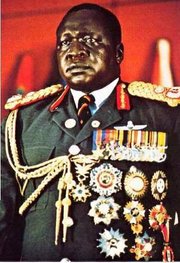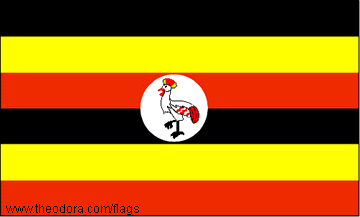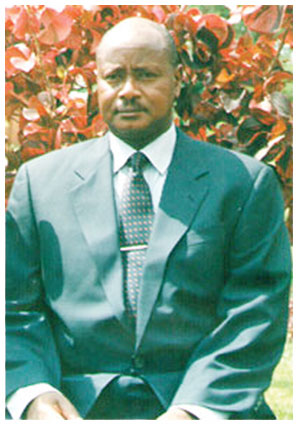HISTORY

A. Milton Obote
Uganda gained its independence from Britain on October 9, 1962 with A. Milton Obote as Prime Minister. The Buganda people from present-day SE Sudan settled in the Cwezi states. In the Cwezi states, they established the Bito dynasties of Buganda. In 1862, John Hanning Speke, an explore from Britain interested in establishing the source of the River Nile, became the first European to visit Buganda. When Mutesa I died, he was succeeded by Kabaka Mwanga, thus began the battle between the central government and the Baganda. The battle was about religion conflicts, with Mwanga trying to persecute the Christianity. Obote forced Kabaka (King) Mwanga to flee the country after he captured the Kabaka's palace at Mengo. With the Kabaka Mwanga gone, the struggle between the central government and the Buganda was over. Obote introduced a new constitution that ended Buganda's autonomy, which was given to Buganda when it gained it's independence. In January of 1971, Obote was overthrown by by General Idi Amin. After clashes with the bodering country of Tanzania and the expulsion of all Asians in Uganda, Amin's rule became growingly brutal. Over 300,000 Ugandans were killed during the 1970s and Amin's corruptness and illogical system of administration intensified the gaps in the Uganda's military.

Idi Amin Dada
In 1976, Idi Amin announced himself the president of Uganda for life. With this Uganda claimed portions of Western Kenya. In Uganda invaded Tanzania trying to annex the Kagera region. Amin and his army was forced out a year after the invasion by anti-Amin forces under the Uganda National Liberation Front (UNFL). The National Resistance Army (NRA) conducted guerrilla campaigns throughout Uganda. The NRA took over Kampala in 1986 and elected its leader Yoweri Museveni president. Museveni instituted cutbacks in the civil service and army and made state-owned companies private. In 1993, Museveni allowed the reinstallation of traditional kings, including King Ronald Muwenda Mutebi II, who is the kabaka (king) of the Baganda people. The kings were not granted political power. In 1194, an assembly was elected, and the resulting constitution legalized and extended a ban on political party activity. It allowed party members to run as independents. Throughout the years, Museveni has encountered hardships just like any other president and he has proved that he can handle them seeing as he is still in office today.
 |
 |
 |
 |
 |